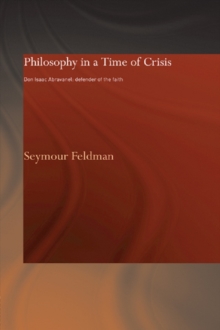
The Ugliness of Moses Mendelssohn : Aesthetics, Religion & Morality in the Eighteenth Century Paperback / softback
by Leah (Hebrew Union College, USA) Hochman
Part of the Routledge Jewish Studies Series series
Paperback / softback
Description
The Ugliness of Moses Mendelssohn examines the idea of ugliness through four angles: philosophical aesthetics, early anthropology, physiognomy and portraiture in the eighteenth-century.
Highlighting a theory that describes the benefit of encountering ugly objects in art and nature, eighteenth-century German Jewish philosopher Moses Mendelssohn recasts ugliness as a positive force for moral education and social progress.
According to his theory, ugly objects cause us to think more and thus exercise—and expand—our mental abilities.
Known as ugly himself, he was nevertheless portrayed in portraits and in physiognomy as an image of wisdom, gentility, and tolerance.
That seeming contradiction—an ugly object (Mendelssohn) made beautiful—illustrates his theory’s possibility: ugliness itself is a positive, even redeeming characteristic of great opportunity.
Presenting a novel approach to eighteenth century aesthetics, this book will be of interest to students and scholars in the fields of Jewish Studies, Philosophy and History.
Information
-
Out of stock
- Format:Paperback / softback
- Pages:192 pages, 13 Halftones, black and white
- Publisher:Taylor & Francis Ltd
- Publication Date:18/10/2018
- Category:
- ISBN:9781138379282
Information
-
Out of stock
- Format:Paperback / softback
- Pages:192 pages, 13 Halftones, black and white
- Publisher:Taylor & Francis Ltd
- Publication Date:18/10/2018
- Category:
- ISBN:9781138379282










